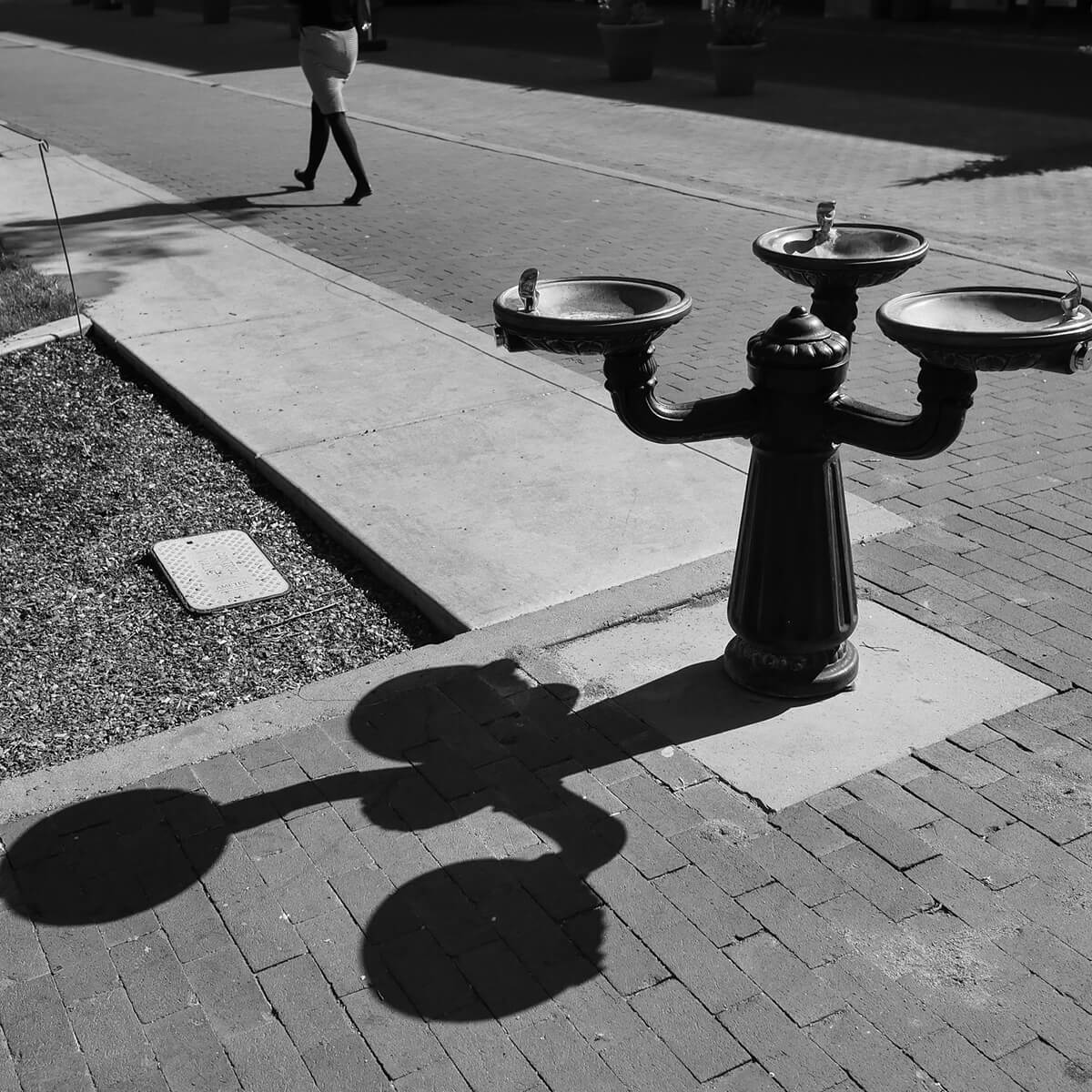Learning to See and Shoot in Black & White
Today’s Post by Barry Staver
I think learning to see in black & white is a subset of the overall experience of learning to see photographically and mirrorless cameras are great tools to use for this. If I had a nickel for everyone who tells me they love black & white photography I’d be wealthy. Ok, not wealthy, but I’d have enough for an extra large latte and a muffin at the local coffee shop.
As a lifelong photojournalist who exclusively shot B&W for decades, I understand its appeal. I personally love to shoot B&W and look at the B&W work of others. Removing color from the scene, converting it to black, white, and shades of gray, enhances the emotional impact. Instead of our eye being drawn to the red shirt a subject is wearing or to the bright lime green of a VW Beetle, we see them in a different context within the frame. We’re more likely to notice the expression on the person’s face or the interaction of the car within the surroundings.

During my wedding photography days I’d always show B&W images to prospective clients. 90% of brides-to-be loved them, raved about them, said they’d want some non-color photographs in their album, yet very few would actually do that, sticking with color. Go figure?
In this digital age, we generally capture images in color and then convert to B&W in post-production, providing a safety valve with that color photograph.

I’m taking my passion to a higher level, the bold step of capturing images in Monochrome mode right in the camera. Color is gone, never to be retrieved. Most mirrorless cameras have a Monochrome setting and my Lumix GH-4 even shows the image in B&W on the LCD screen and in the EVF. Shooting with this method helps you see compositions, textures, along with light and shadow in an exciting way.
Here’s a great exercise for you to try. Set your camera to Monochrome and take a photo stroll through your neighborhood. You’ll be amazed at how different the photographs look, both in the camera as you shoot, and on your screen when you get back home.
photo credit: © 2015 Barry Staver Photography, barrystaver.com, 303-880-8063.



